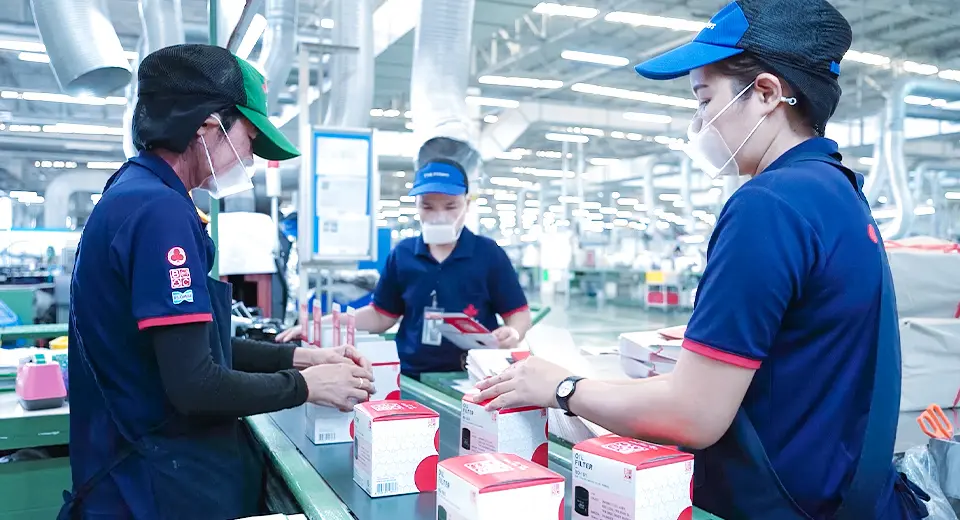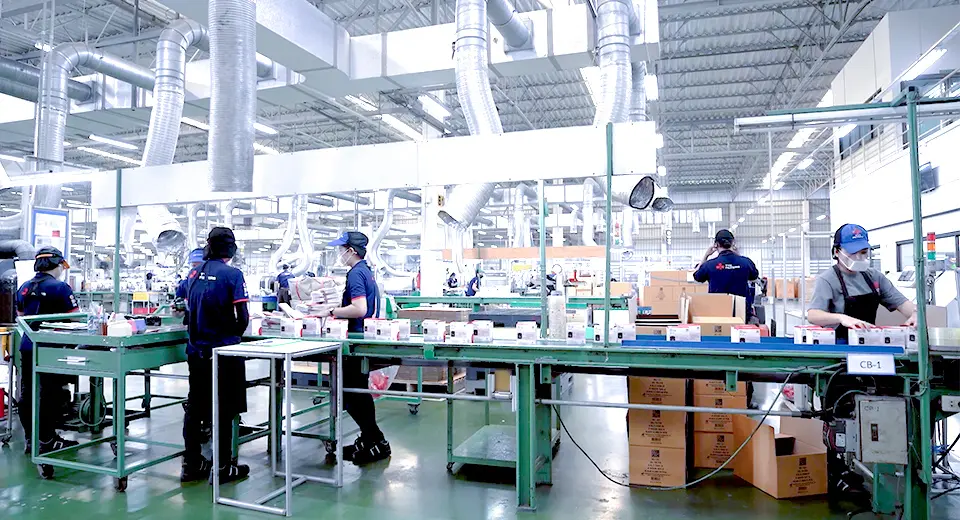Achieved a Fast Start-up of Production Lines
Nakamura Electric Industry Co., Ltd.
Automotive Parts Industry
- Challenge of Producing In-house
- Automotive Parts
- Improving Production Line Efficiency
- Factory IoT
- Improvement










TYK Filters
Manufacturing Industry
TYK Filters is a manufacturer specializing in filters, marked 70 years in business in 2024. They have been supplying high-quality filters to a wide range of industries, such as automotive, industrial, and construction industries, etc. As labor costs are rising in Thailand, they decided to automate the production lines from the packaging process, but it did not lead to optimization of the entire process, which was a huge issue for them.
In the end, TYK Filters achieved automation of the entire production line based on the Lean Concept, which thoroughly eliminates wasteful work and loss of time and labor. In addition, the introduction of DENSO's Factory IoT has resulted not only in labor savings, but also in improving and stabilizing productivity. Here is a detailed description of the process of introduction and the achievements.
We, TYK Filters, were aiming to increase productivity through automation due to the rising labor costs in Thailand.
Our first focus was to automate the packaging process. However, as we proceeded with the automation, we realized that it is not sufficient to improve efficiency or reduce the number of workers in only 1 process. Instead of automating just 1 process, we needed to start by redesigning the entire process, taking into account the balance between the processes before and after.
Therefore, we began by considering the entire production line and thoroughly eliminating waste in the process. We then introduced robots, and as a result, we were able to reduce the number of workers from 3 to 1 without changing the operation time. Production capacity was increased to 150%, and OEE (Overall Equipment Efficiency) was achieved at a high level of 85%. Furthermore, we have succeeded in building a flexible production system that can handle as many as 84 types of products.

Through this project, we understood the essence of Lean Automation. For example, at first we were going to install Vision Camera to grasp the products, but after reviewing the entire process flow, we determined that it was possible just by using conveyor guides. This allowed us to reduce the number of robots from 2 to 1.
Through DENSO's Factory IoT, we have realized something important. Automation is not just about installing robots.
It is important to thoroughly review the production line, reduce waste in each process, and avoid creating new losses, such as the time required for operations and maintenance and the labor required for troubleshooting. We learned that true automation can be achieved by constantly identifying and reducing waste and loss based on Lean Concept. We will continue to promote Lean Automation utilizing DENSO's Factory IoT.

We will lay the foundation for maximizing productivity and improving your manufacturing site with advice based on our skills and experience. Please feel free to contact us for more information.
The Future of Factories Begins Here.

